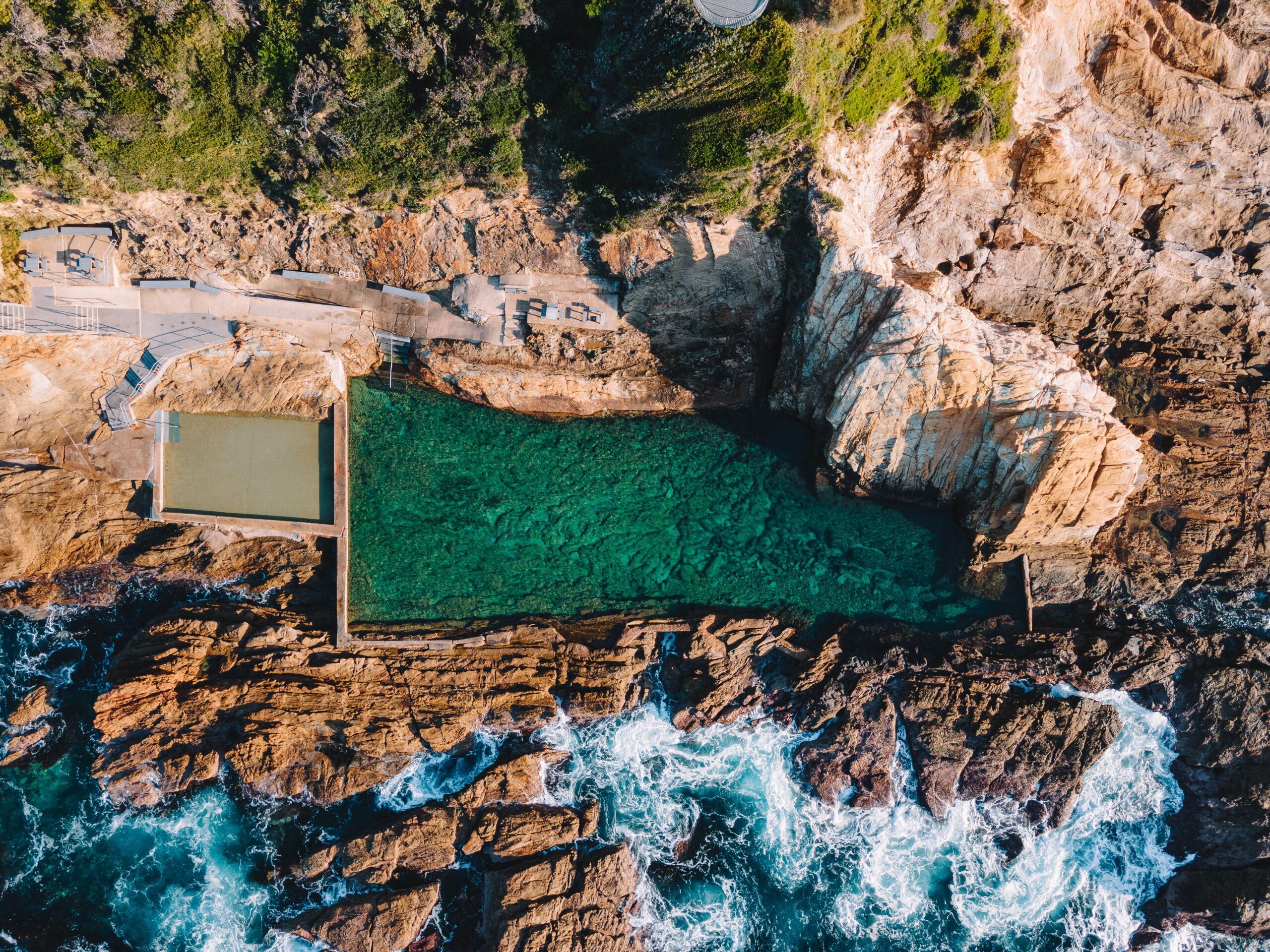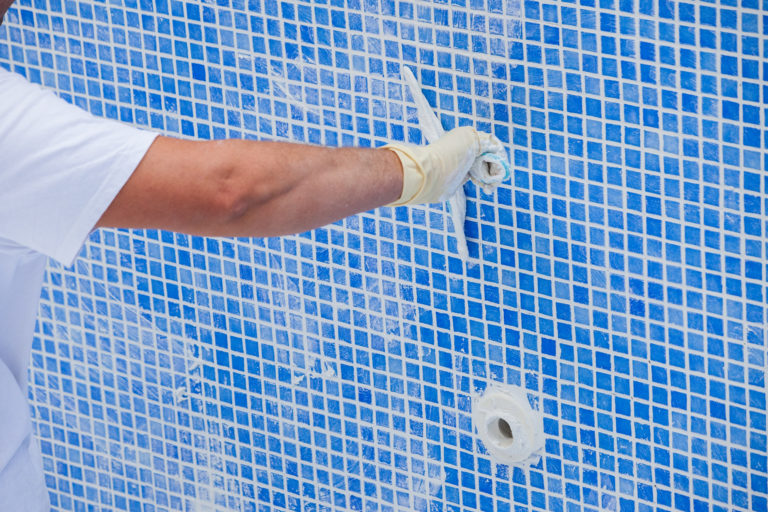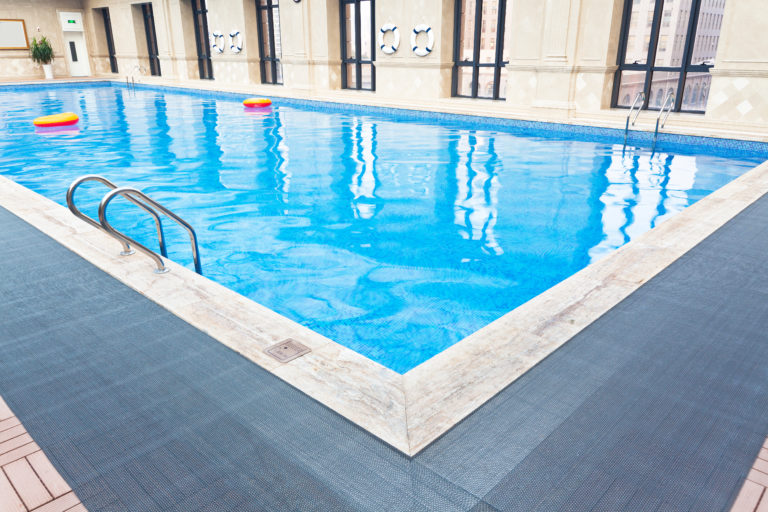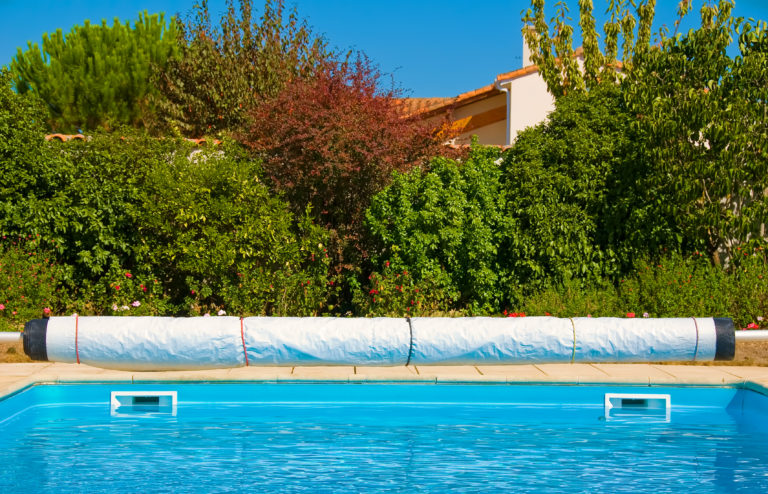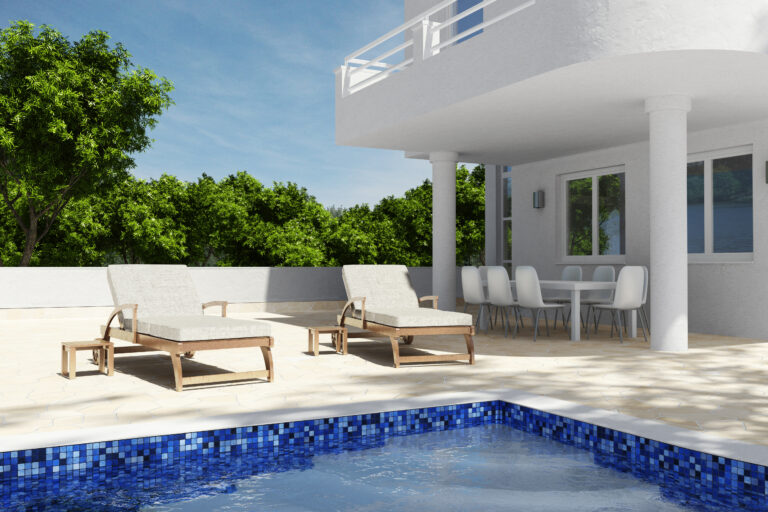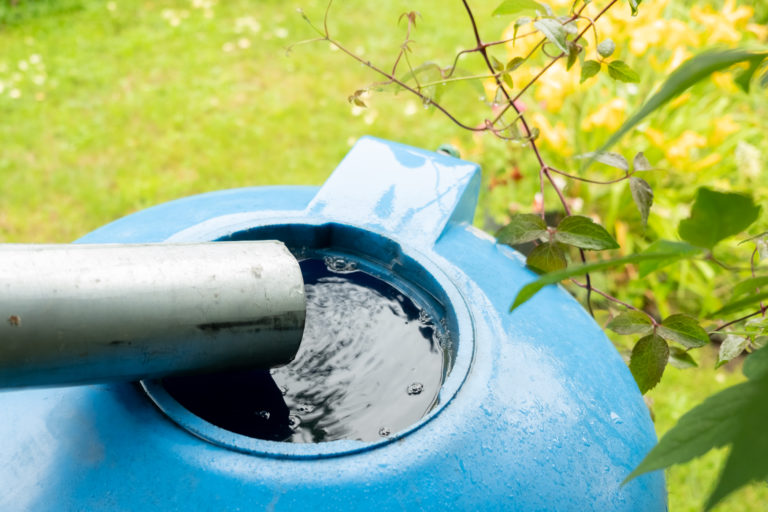A Dive into Saltwater Pools Benefits and Design Ideas
You’ve probably heard about saltwater pools, but what’s the big deal? In this comprehensive guide, you’ll explore the science behind them, uncover their key benefits, and understand why they’re a healthier choice.
You’ll also get a glimpse into maintenance costs and inspiring design ideas.
So, if you’re considering making the switch from chlorine to saltwater pools, let’s dive in!
Understanding Saltwater Pools
Let’s delve into what saltwater pools are and why they’re becoming a popular choice for homeowners.
Unlike traditional chlorine pools, saltwater pools use a process called electrolysis to sanitize the water. This means you’re swimming in softer, less irritating water that won’t dry out your skin or bleach your swimsuits.
But why the sudden popularity? Well, it’s all about saltwater sustainability and ecological impacts.
Saltwater pools require fewer chemicals than their chlorine counterparts, making them an eco-friendly option worth considering. Plus, they demand less maintenance as the system self-regulates to some extent.
In terms of ecological impacts, these types of pools have been found to be kinder on the environment. They don’t generate harmful by-products like chloramines, which can cause respiratory problems in swimmers and contribute to greenhouse gas emissions.
Of course, there’s no such thing as a perfect pool type – each has its pros and cons depending on your specific needs and preferences. But if you’re after something that’s easy on both the eyes and the environment – not to mention your skin – then a saltwater pool could be just what you’re looking for!

The Science Behind Saltwater Pools
You’ve heard about the benefits of saltwater pools, but have you ever wondered about the science behind it all?
In this discussion, we’re going to delve into saltwater pool chemistry and compare it with traditional chlorine-based pools.
Get ready to dive deep and uncover what makes a saltwater pool tick and how it stacks up against its chlorine counterpart.
Saltwater Pool Chemistry
Understanding saltwater pool chemistry isn’t as complicated as it might seem at first. You just need to know a few key things, starting with how saltwater electrolysis works. This process involves the conversion of salt into chlorine through electrical energy. It’s what keeps your pool clean without needing excessive chemicals.
However, it’s not all smooth sailing. You’ve got to keep an eye out for corrosion issues too. Saltwater can accelerate the deterioration of certain materials, particularly metals in your pool equipment or surrounding areas. But don’t worry! With regular maintenance and careful selection of materials, these problems can be managed easily.
So there you have it – a brief dive into saltwater pool chemistry that hopefully makes it feel less daunting for you.
Saltwater Versus Chlorine
Comparing a traditional chlorine pool to a saltwater system, it’s important to consider the differences in maintenance, cost, and effect on your skin. You might be surprised to discover some common saltwater pool misconceptions.
For instance, they’re not completely free of chlorine – they just produce it naturally, reducing the need for harsh chemical additions.
Conversion challenges may seem daunting but are usually manageable with professional assistance. The upfront cost for conversion can be higher compared to maintaining a conventional chlorine pool; however, over time you’ll likely save on chemicals and experience less wear on your equipment.
Plus, you’ll enjoy softer water that feels better on your skin with fewer irritants. So weigh these factors when deciding between saltwater versus chlorine pools.
Key Benefits of Saltwater Pools
Saltwater pools offer several key benefits over traditional chlorine pools. They require less maintenance and are more stable, allowing you to spend more time enjoying your pool. Additionally, saltwater systems are eco-friendly, using electrolysis to sanitize water instead of harsh chemicals. This reduces your exposure to harmful substances and minimizes the environmental impact. Lastly, swimming in a saltwater pool is gentler on your skin and eyes, reducing irritation and leaving your skin feeling smoother. So, while there may be an initial investment, opting for a saltwater system means choosing durability, sustainability, and overall greater comfort in the long run.
Health and Wellness Advantages of Saltwater Swimming
Having explored the key benefits of saltwater pools, you’re probably already considering a refreshing dive. But wait, there’s more to relish! In addition to their easy maintenance and eco-friendly nature, saltwater swimming offers remarkable health and wellness advantages.
Firstly, let’s focus on skin improvement. Unlike chlorinated water that can dry out your skin and cause irritation, the saline solution in saltwater pools is much gentler. It acts as a natural moisturizer, exfoliant, and detoxifier. You’ll notice an improvement in your skin’s texture almost immediately after leaving the pool.
Secondly comes the therapeutic effects. Swimming in saltwater has been shown to promote physical and mental wellbeing. The water’s buoyancy helps alleviate joint pain while its mineral content enhances circulation.
Lastly but certainly not least are the respiratory benefits. Ever wondered why you breathe easier after spending time by the sea? Saltwater helps clear your lungs of toxins and impurities.
In summary:
1. Saltwater swimming leads to significant skin improvements.
2. It provides various therapeutic effects for both body and mind.
3. It aids in clearing out respiratory blockages.
So next time when planning some leisure or workout time, consider taking a plunge into a saltwater pool for these gains beyond just fun!
Maintenance and Costs Associated With Saltwater Pools
While they’re a bit pricier upfront, the ongoing costs of maintaining these types of swimming areas can actually be lower in the long run. Yes, the initial setup for a saltwater pool is more expensive than a traditional chlorine one. However, you’re not just paying for a pool; you’re investing in your home’s value and your family’s health.
Let’s talk about pool longevity. With less chemical use and easier maintenance routines, saltwater pools tend to last longer. They don’t suffer from the same wear and tear as their chlorinated counterparts. You’ll find yourself replacing parts less often, which can save you money over time.

Now think about those costly trips to the pool store for chemicals or hiring someone to maintain it all summer long. With a saltwater system, you won’t have to worry about these expenses quite as much.
So while that initial sticker shock might make you hesitate, remember it’s not just an expense-it’s an investment in your lifestyle. And when it comes down to dollars and cents over time? Choosing a saltwater pool starts making more sense.
Comparing Saltwater Pools and Chlorine Pools
You’re probably wondering how saltwater pools stack up against traditional chlorine pools. Let’s delve into the key differences in maintenance and explore their respective impacts on health.
By understanding these aspects, you’ll be better equipped to make an informed decision about which type of pool is right for you.
First, let’s discuss maintenance. Saltwater pools require less maintenance compared to traditional chlorine pools. With a saltwater pool, you don’t need to regularly add chlorine tablets or shock the pool. Instead, a saltwater generator converts salt into chlorine, which helps keep the water clean and sanitized. This means fewer trips to the store for chlorine and less time spent on pool maintenance.
Now, let’s consider the impact on health. Many people find that saltwater pools are gentler on their skin, eyes, and hair compared to traditional chlorine pools. The lower chlorine levels in saltwater pools can reduce skin and eye irritation, making swimming a more enjoyable experience. However, it’s important to note that both types of pools still require proper water balance and regular testing to maintain optimal health and safety.
Lastly, let’s break down the cost analysis. Saltwater pools tend to have higher upfront costs compared to traditional chlorine pools. The saltwater generator, installation, and initial salt fill can be more expensive. However, over time, saltwater pools can be more cost-effective due to lower maintenance and chemical costs. It’s important to consider your budget and long-term plans when deciding which type of pool to invest in.
Maintenance Differences”
It’s crucial to understand that maintenance for saltwater pools differs significantly from traditional chlorine pools. Saltwater troubleshooting can be more complex due to the unique equipment and processes involved. However, the eco-friendly implications of using a saltwater system are undeniably beneficial.
Here’s a simple table to illustrate some key differences:
| Saltwater Pool | Chlorine Pool | |
| Maintenance Frequency | Less Frequent | More Frequent |
| Eco Friendliness | High | Low |
| Troubleshooting | Somewhat Complex | Simpler |
| Cost Over Time | Lower | Higher |
| Health Impact | Safer | More Harmful |
Understanding these differences will help you make informed decisions about your pool maintenance and enjoy its benefits more fully.
Health Impact”
Let’s discuss the health impact of using different types of pools, particularly focusing on chlorine and saltwater systems.
You’ve likely heard about the skin benefits of swimming in saltwater pools. They can leave your skin feeling soft and smooth, unlike the harsh drying effect that chlorine can have. Saltwater is also great for allergy relief. If you suffer from allergies, a dip in a saltwater pool might just be what you need to clear up those pesky symptoms.
But don’t discount chlorine just yet. It’s effective at killing bacteria and keeping the pool water clean. However, overexposure can lead to itchy eyes and dry skin, so moderation is key.
In deciding between these two options, consider your health needs alongside maintenance demands for an optimal experience.
Cost Analysis
When we’re discussing cost, there’s a noticeable difference between maintaining a chlorine pool versus a saltwater system. The initial installation expenses for both can make you wince, but you’ll find that the ongoing costs are where the true differences emerge.
* Initial installation expenses:
– Chlorine pools may seem cheaper at first glance.
– Saltwater systems have higher upfront costs.
* Energy efficiency comparisons:
– Chlorine pools require frequent refilling and chemical balancing, which consumes more energy.
– Saltwater systems generate their own chlorine, allowing for better energy efficiency over time.
It’s key to remember that your choice should strike a balance between financial viability and long-term satisfaction. Whatever your decision might be, ensure it aligns with what makes you feel most comfortable in your backyard oasis.
Saltwater Pool Design and Planning Considerations
You’ll need to consider several factors when designing and planning your saltwater pool. Primarily, you’ll want to think about pool landscaping and the installation process.
Pool landscaping is crucial in creating an inviting atmosphere around your pool. You’d want to choose plants that can withstand the salty water splashes. Also, think about how you want your backyard space to function – do you want it just for swimming or also for entertaining? Picking the right furniture and lighting will help create a relaxing ambiance.
Then comes the installation process of your saltwater pool which isn’t quite as simple as digging a hole in your backyard. You’d have to consider factors such as soil type, drainage, and local building codes. It’s best to consult with professionals who can guide you through this process so that no mistakes are made that could lead to costly repairs down the line.
Inspiring Saltwater Pool Design Ideas
Having considered all the planning aspects for your saltwater pool, let’s now delve into some inspiring design ideas that’ll transform your backyard into a luxurious oasis.
One crucial element that you shouldn’t overlook is pool lighting. You might be surprised at how much drama and ambiance properly placed lighting can add to your pool area. It not only enhances safety for night-time swimming but also creates a spectacular visual effect that complements the water’s natural allure.
Next, consider your landscaping surroundings. They play a key role in achieving the overall aesthetic look of your outdoor space. The right choice of plants, trees, and flowers can create a tranquil environment akin to an exotic resort right in your backyard. Imagine lounging by the poolside surrounded by lush greenery – it’s like having a vacation without leaving home!
Think about incorporating natural stones or pebbles around your saltwater pool as well; they contribute to that coastal feel associated with oceanfront settings.
Making the Switch: From Chlorine to Saltwater Pools
It’s not uncommon for homeowners to consider making the switch from traditional chlorine pools to saltwater alternatives. This transition process might seem daunting, but it’s easier than you’d think.
Firstly, decide whether your current pool structure can handle the conversion. Saltwater systems require specific equipment and materials that can resist corrosion.
Next, drain and thoroughly clean your old pool; this stage is crucial for ensuring the longevity of your new saltwater setup.
After prepping your pool, install a chlorinator; this device turns salt into chlorine to keep the water sanitized without harsh chemical additives. You’ll then add the sufficient amount of salt recommended by the manufacturer before setting up your system controls.
Now comes a vital aspect-maintaining the balance of chemicals in your pool. Although fewer chemicals are needed with a saltwater system, they’re still essential for keeping everything running smoothly and sustainably.
The transition process may require patience and effort initially, but once completed, you’ll reap significant benefits. The most rewarding being saltwater sustainability; meaning less reliance on harmful chemicals and more time enjoying healthier swims in softer-feeling water.
In conclusion: Switching to a saltwater pool isn’t just an aesthetic choice-it’s a sustainable one too!
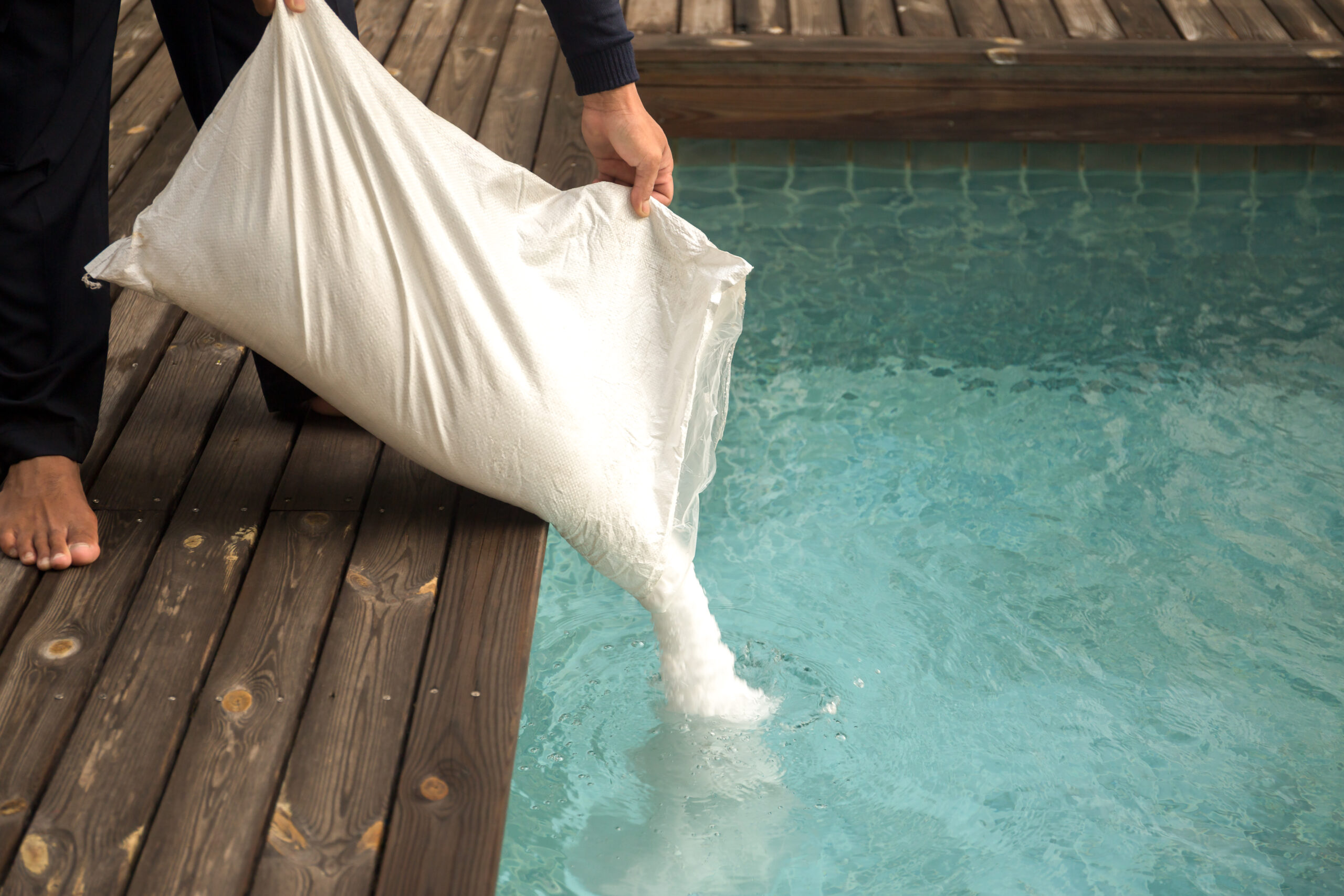
Frequently Asked Questions
What Type of Pool Is Better for People With Skin Conditions: Saltwater or Chlorine?
If you’re dealing with skin conditions, saltwater pools can be a better choice. They’re gentler on the skin, making them great chlorine alternatives. However, do consider potential saltwater allergies before making your decision.
Are There Any Potential Environmental Impacts of Saltwater Pools?
Yes, saltwater pools do have potential environmental impacts. Their maintenance involves electricity consumption and the use of chemicals, which can increase your ecological footprint. It’s crucial to consider these factors in your decision-making process.
Can Saltwater Pools Be Heated and if So, Does This Affect the Salt Levels?
Yes, you can heat saltwater pools. It doesn’t affect the salt levels. However, heated pools require more maintenance. When comparing energy efficiency, they’re similar to freshwater heated pools but might cost slightly more overall.
Are There Any Specific Precautions to Take When Swimming in a Saltwater Pool for the First Time?
Before your first swim in a saltwater pool, check for a saltwater allergy. Initial reactions may vary. Like any pool, don’t swallow the water and rinse off afterwards to avoid skin irritation.
What Are the Considerations When Installing a Saltwater Pool in a Coastal or High-Salt Environment?
When installing a saltwater pool in high-salt or coastal areas, you’ve to consider saltwater corrosion and adapt your coastal landscaping. Use corrosion-resistant materials and select plants tolerant to high salinity for success.

